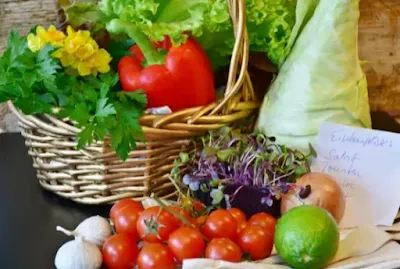Winter Vegetables and Their Benefits
Amazing Winter Vegetables and Their Benefits
The cold season of the year brings a lot of joy and happiness along with its cool climate and budding leaves. In the same way, it acquires a completely different cluster of new vegetables which is also collected during this time. Some of these vegetables include spinach, carrots, cabbage, Brussels sprouts, cabbage, broccoli, winter squash and more. These vegetables are similarly plentiful throughout the year due to our advanced food framework, however they are considered 'in season' and when they are usually prepared and stored during the colder months. These are the newest.
Eating ground-grown food during their regular growth and harvest season can guarantee that they are also the fattest and best food for you. You can find these earthenware products locally on a regular basis during their normal season, which can also help boost your neighborhood's economy. In addition to these common and natural benefits, real vegetables provide us with a lot of nutrients, minerals and anti-cancer agents when we remember them in our eating habits.
Spinach
Spinach is a very popular and delicious green vegetable. This pale green plant usually grows all year round, despite the fact that its regular season is during the colder times of the year when it is usually harvested. Spinach leaves can be used as a green base for mixed vegetable plates, mixed into smoothies for extra supplements, cooked as a side dish or in soup or egg scrambles. Can be mixed
Spinach is extremely rich in cancer prevention agents, which keep our body strong at the cell level. It is also rich in L-ascorbic acid, vitamin K, vitamin A, and many different nutrients and minerals. It is an excellent source of supplements and does not have a solid taste.
Carrots
Carrots are a sweet, crunchy, beautiful vegetable. Carrots can be grown throughout the winter, unlike a ton of ground food. These vegetables fill the ground and can be orange, white, purple or a variety of tones in the middle. Once cut, you can get them in whole carrot form or as baby carrots, shaved to give you less vegetables that we absolutely love.
Carrots are an exceptionally rich source of vitamin A, which is why they are generally associated with eye health. In addition, it is a good source of vitamin K and L-ascorbic acid, as well as a decent source of fiber, which is good for our gastrointestinal health.
Crusaders
Cruciferous vegetables are a group that includes cabbage, broccoli, cabbage, and Brussels sprouts. These are a selection of extra fat vegetables that accumulate completely in the pre-winter cold months, while some can be stuffed in the spring. In broiler times these crucifixes are made by chopping vegetables but can still be made using a variety of cooking techniques.
Cabbage, cabbage, broccoli, and Brussels sprouts are each with exceptionally high levels of vitamin K and L-ascorbic acid. In fact, just one cup of cabbage contains 100% of your daily L-ascorbic acid needs! These vegetables also contain limited amounts of calcium and iron.
Winter squash
Winter squash is found regularly in the autumn and cold seasons for a long time of the year. This vegetable arrangement includes pumpkins, butternut squash, spaghetti squash, oak seed squash, and many types of squash. Cooking winter squash can be extra painful as they need to be cut open, seeded, cleaned and cooked later. However, it is a tasty and relaxing vegetable that can be a great addition to any project.
The majority of these colder times of the year are an unusual source of carotenoids, a precursor to vitamin A, just as L-ascorbic acid. They contain a lot more sugar than most vegetables, however they are still an extraordinary source of supplements to remember the fair eating habits and occasionally add vegetables to your weekly schedule. It can be an incredible way to connect.
There are a wide variety of winter vegetables that can be appreciated in the colder months with more significant additional benefits. These vegetables are very flexible and can be made into delicious side dishes or added to courses and meals as you see fit. Choose vegetables from one of these colder times of the year and try to join the weekly schedule after this week, formulate a formula with it in some other way, or try to do something for which you will never have your own. Normal supplement consumption did not have to be prepared!


.jpg)
Comments
Post a Comment